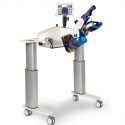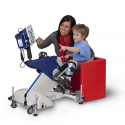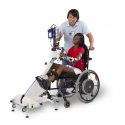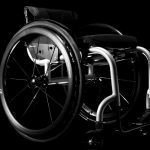Multiple Sclerosis (MS) is an autoimmune disease in which the body attacks the myelin sheath surrounding nerves in the central nervous system, disrupting information flow. It is characterised by, among other symptoms, muscle weakness and fatigue as well as muscle stiffness and spasms. Together, these symptoms can affect motor ability.
Functional Electrical Stimulation (FES) cycling with RT300 for patients with mild to moderate MS has been the topic of several research articles during the last several years. FES cycling at home with RT300 improved functional walking measures, strength in stimulated muscles, and quality of life in five patients with progressive MS and Expanded Disability Status Scale (EDSS) score between 5.0 and 7.0 (Ratchford et al 2010).
Hammond et al (2015) conducted a retrospective study of MS patients undergoing rehabilitation including the use of RT300 and with EDSS varying from 2.5 to 7.5, mean 6.0. The authors found that there was no disability progression on the EDSS and that lower extremity motor scores as measured by the International Standards for Neurological Classification of Spinal Cord Injury (ISNCSCI) improved.
Benefits functional and health outcomes, both short and long-term
Reynolds et al (2015) extend the scope of RT300 MS research with a focus on MS patients who are non-ambulatory as defined as unable to ambulate farther than household distances (>=200m or about 70ft). The authors reported the effects of RT300 FES cycling on muscle metabolism (as measured by skeletal muscle oxygen consumption) in MS patients with EDSS greater than 6.0.
Authors also evaluated changes in cycling resistance (ability to cycle against a higher resistance for the same stimulation parameters suggesting more effective muscle contractions) and cycling duration. After four weeks of FES cycling, all participants able to cycle 30 minutes at baseline had significantly increased their cycling resistance and those not able to cycle 30 minutes at baseline significantly increased the amount of time they could cycle.
Concurrently, the data showed a trend toward improved muscle oxidative function. According to the authors, the improved muscle metabolism was consistent with the improved cycling performance and may lead to cardiovascular and metabolic benefits.
The Reynolds et al (2015) study adds to the wealth of existing FES research in which RT300 cycling has been shown to benefit a range of conditions. These include acute and chronic SCI, acute and chronic stroke, MS of different severities and diagnoses, cerebral palsy, and transverse myelitis. Documented benefits encompass both functional and health outcomes, both short- and long-term.










Recent Comments